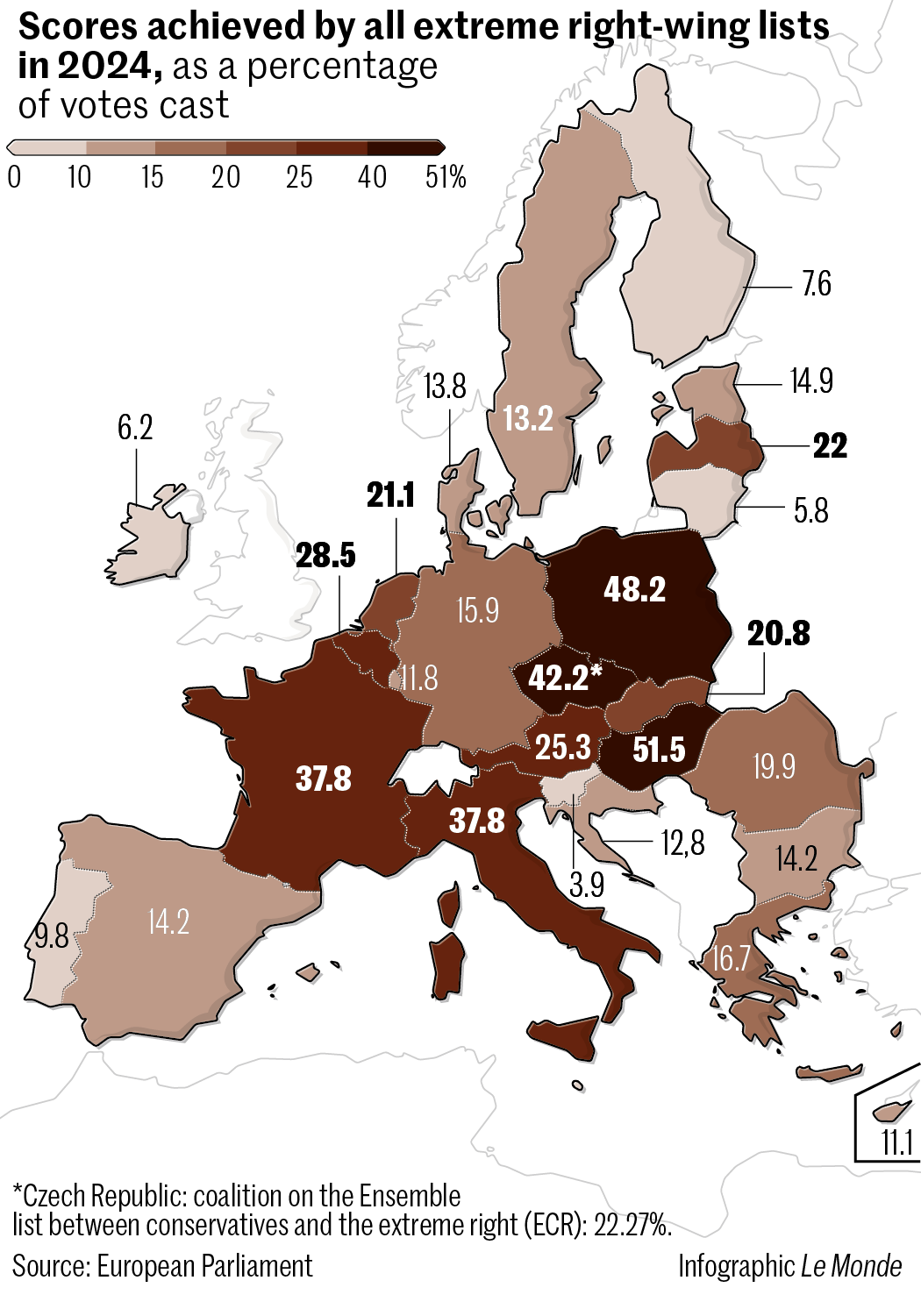


The results of the European elections on the evening of Sunday, June 9, delivered a clear verdict. In the European Parliament, where they will make their return on July 16, there will be more MEPs on the far-right benches than before. Almost everywhere across Europe, nationalist groups have gained seats. Today, only Malta and Slovenia have no far-right representatives in Strasbourg. That is, if you don't count the ultraconservative party of former Slovenian Prime Minister Janez Jansa, who came out on top on Sunday and is currently affiliated with the European People's Party (EPP) of the European right.
In a climate where radical right-wing parties have the wind behind their sails, the founding countries of the European Union (EU) stand out, with a strong rise in nationalist parties. However, these groups did less well than expected elsewhere, particularly in the eastern countries.
In France, the far-right Rassemblement National (RN) was the big winner, as was Fratelli d'Italia, the post-fascist party of Prime Minister Giorgia Meloni, in Italy, and Vlaams Belang in Belgium. In Germany and the Netherlands, the AfD and Geert Wilders' PVV came in second. Of the six signatories to the Treaty of Rome, only Luxembourg escaped this far-right surge. But for the first time in its history, the Grand Duchy will be sending a nationalist MEP to Strasbourg.
Of course, "the reasons for the success of the far right vary from country to country," pointed out researcher Thierry Chopin of the Institut Jacques Delors. The trend emerging among the EU's major founding countries is no less troubling. "Our generation has inherited the European Union, and thinks that everything is taken for granted and that we can play with fire," said MEP Nathalie Loiseau, of French center-right party Horizons.
For the countries that have joined the Union since its creation, the memory of nationalism is closer to home. In Spain and Portugal, memories of the Franco and Salazar dictatorships are still fresh. The Regime of the Colonels (1967 to 1974) in Greece has not been forgotten either. In Central and Eastern Europe, communism still has a repellent effect, even if the far right is part of the political landscape in countries like Hungary and Poland.
In this region, the war in Ukraine, so close, has undoubtedly rekindled the feeling. In Romania and Poland, the conflict was at the heart of the campaign and contributed to the success of the pro-European parties. "These countries are afraid of Russia and know that the EU is part of their security," said Andrzej Sadecki, head of the Central Europe department at the Center for Oriental Studies in Warsaw.
You have 69.84% of this article left to read. The rest is for subscribers only.
